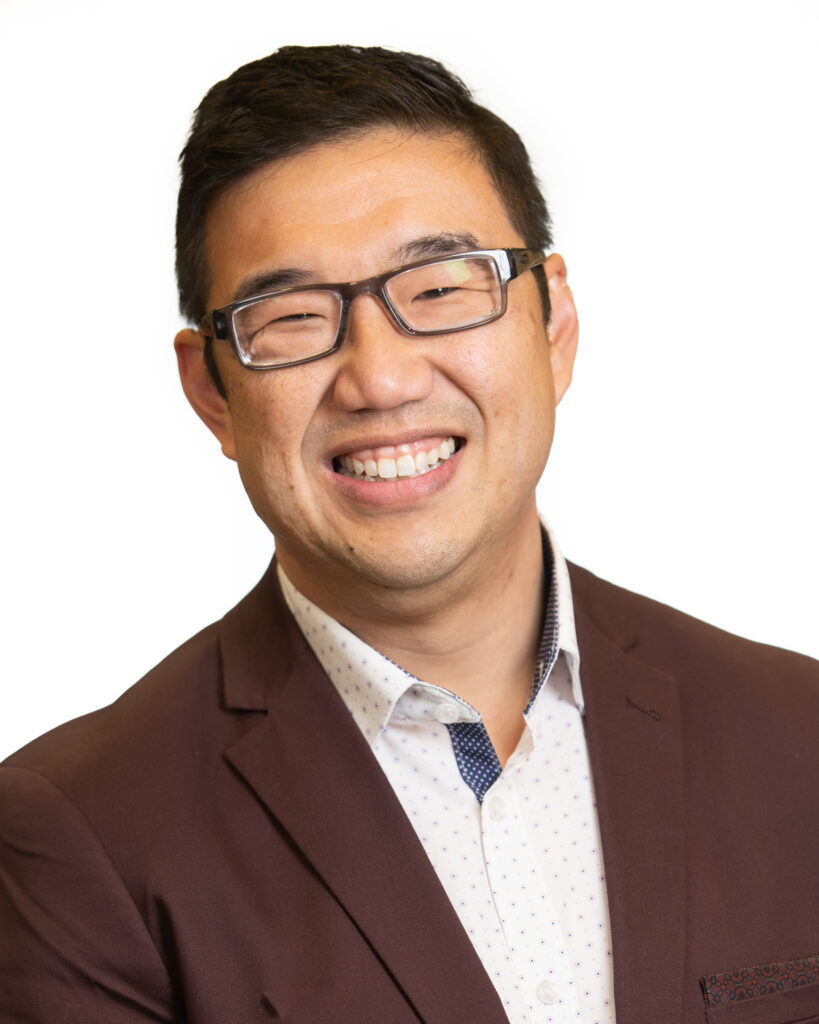Please tell us a little bit about yourself and your work and how it relates to your personal leadership project (PLP).
My name is Raymond Tsai, and I am a family medicine physician and clinical informaticist working in California. I provide the medical direction for a private company’s philanthropic mission to improve health and wellness in the rural communities where its agricultural workforce lives and works in Central California. In my role, I oversee six other clinicians, and together we provide primary care across five different sites and a mobile clinic using an interdisciplinary model that includes health coaches, behavioral health, physical wellness, and nutrition. Since we are funded outside of the traditional healthcare system, we have the opportunity to create a system that aims to answer the question: “What should health care look like if its primary objective is only to improve community health?”
I believe an ideal system is one that maximizes interdisciplinary care, embeds itself into the community, invests in social determinants of health, focuses on culturally appropriate care, works towards health equity, and maintains flexibility to adapt to individual patient circumstances. My PLP is directly related to my daily work to provide access to high-quality health care for patients in the traditionally underserved rural communities where the clinics I work at are based. I am doing that by developing a new primary care centered health system that is built on the unique alignment between a self-insured employer, payer, local clinicians, health care entities, and community.
Why do you do this work? What is the influence and inspiration behind it?
Our current U.S. health care system is broken in many ways, but ultimately, we are spending way too much money for a disjointed system that doesn’t actually provide better health outcomes compared to other systems around the world. While I was in medical school, I had a choice to either learn to thrive within our current system or try to be disruptive and change it. I decided on the latter, which is ultimately why I pursued family medicine. I feel strongly that primary care clinicians are critical in improving overall community health because they are uniquely poised to embed themselves into communities to build trust, champion positive lifestyle changes to prevent disease prior to patients showing up sick, advocate against social inequities that impact communities, and have an overall view of the health care landscape to coordinate various stakeholders. The physician Albert Schweitzer, who is an inspirational historical figure, said something that influenced my career choices: “Grow into your ideals so life cannot rob you of them”. I do my current work because it allows me to grow into my ideals around how I can serve communities through primary care.
How did PLS help you develop your PLP?
Learning leadership lessons through various presidential administrations is a unique opportunity and has helped me advance my professional skills, but honestly, I have grown the most from interacting with the other leaders in PLS. Interacting with such a diverse, inspirational, and accomplished group on a nearly daily basis has helped me develop both personally and professionally. My class helps me achieve my PLP all the time because they inspire me to reach for goals that I otherwise would not consider possible.
Which lessons learned during PLS have stayed with you the most?
When the program began, we spent a lot of time talking about communication and being purposeful on how to scaffold conversations to be most productive. That is the lesson that has stayed with me the most throughout PLS, and it is the lesson that I also layer upon the other lessons. For instance, one of the main themes in the program is building strategic partnerships. I now spend a lot of time thinking about how to structure my conversations with my local stakeholders, so I can build the strategic partnerships I need. Even during regular staff meetings or individual check-ins, I have become exceedingly mindful of what a positive outcome would be for each interaction and spend time thinking about how to structure those conversations. Previously, I would think about what I wanted to communicate, whereas now I spend an equal amount of time thinking about how the communication should occur.
What advice do you have for the 2022 Scholars?
My advice is to have no pride in asking for help. I personally get nervous that by sharing my struggles, I am revealing my deficiencies as a leader. I also get a thought in my head that if I am truly a great leader, I would be able to figure out problems on my own. I had a jarring experience earlier this year that showed me how wrong I was on both accounts. I had a leadership challenge that was incredibly complex while also being very emotionally painful, which made it even more difficult to navigate. I reached out to my class and was immediately surrounded by incredible compassion that helped me heal emotionally. I was also presented with many diverse perspectives that helped me see alternatives that I otherwise would have missed. I called it a masterclass via group chat, and I am so thankful I asked for help. I highly encourage everyone to ask for help from their PLS friends when they need it. The depth of experience and varied perspectives I received from my class was incredible in helping me navigate a difficult situation.

